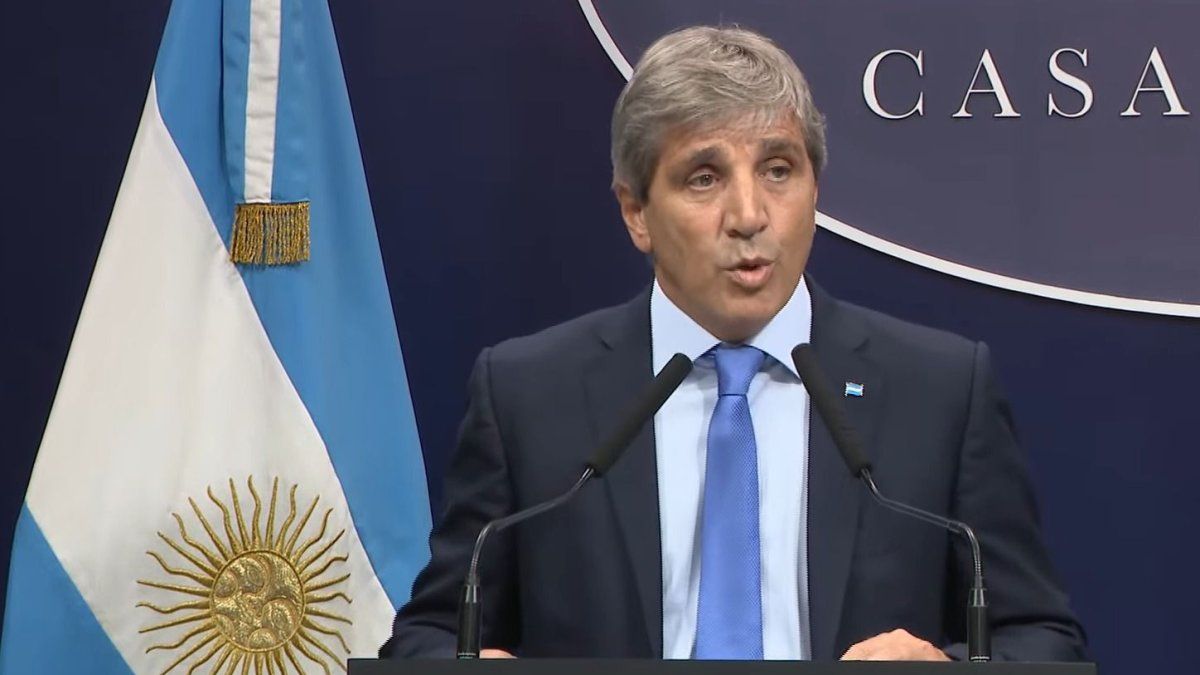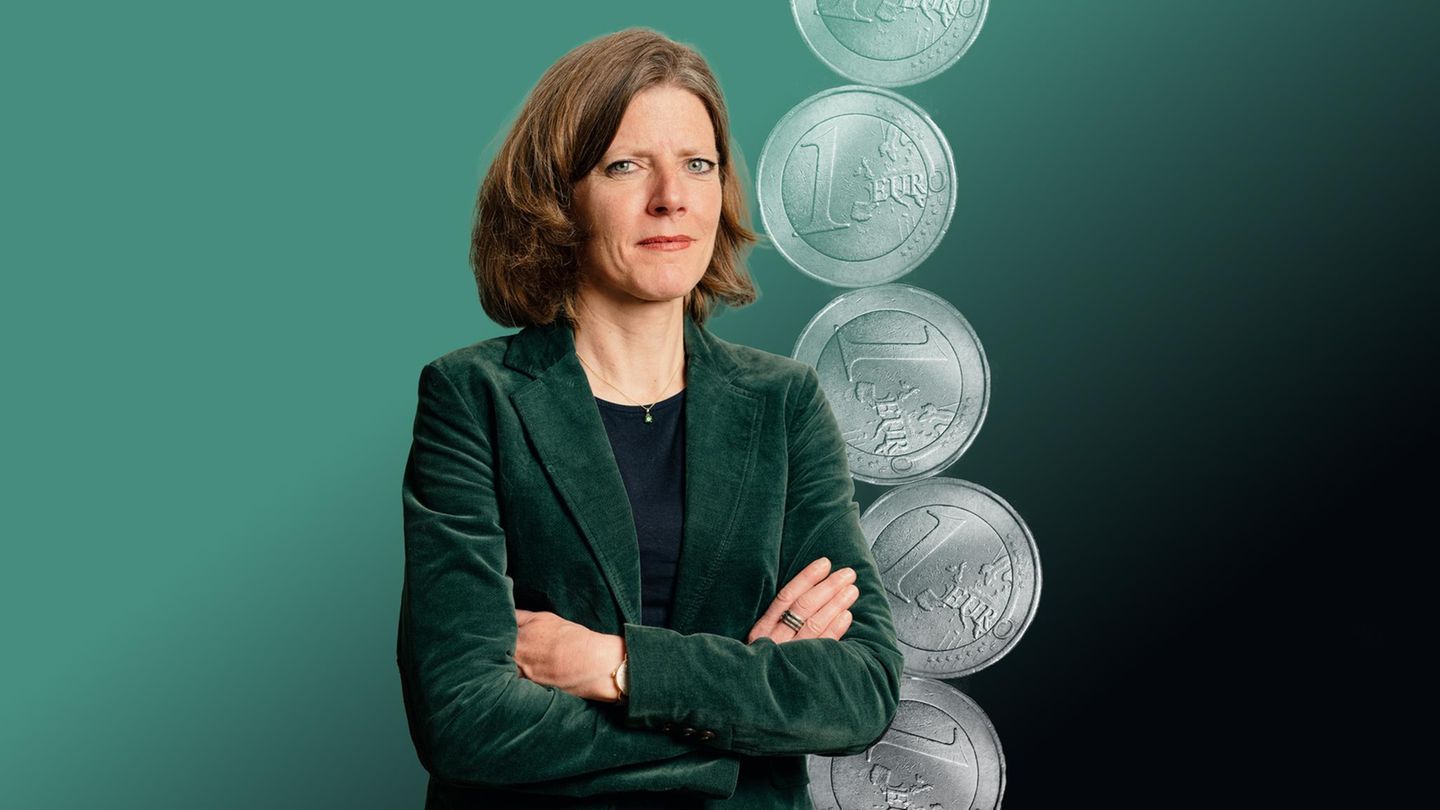The debt restructuring that led us to the debate of Judge Griesa and the Pari PassuIt was debt of the time of the dictatorship and that increased during the government of Carlos Saúl Menem. Alfonsín experienced the effects of IMF intervention with the grids and northern rounds by its Minister of Economy Juan Vital Sourrouille which, under its neoclassical influence -specialist in national accounts -proposed the southern plan and the Drain; First, 1000 pesos for an Austral, and second that was the drain? There was an already adjusted currency, the Austral, and a currency with incorporated inflation, the contractual.
Therefore, when the contracts won and the committed had to be paid a “tabit” of Quita was applied. That tab of the call Drainhe defined prices by removing the inflation that he had implicitly calculated. Therefore, the longer duration of the contractual term, less was what the creditor ended up perceiving. Infobae tells about its twenty years of implementation, qualifying it as “Heterodox adjustment”.
The economists who accompanied Sourrouille were Machinea (Minister of De la Rúa), Lavagna (Minister of Duhalde and Néstor Kirchner), Daniel Heymann (during the government of Alberto Fernández was appointed by Martín Guzmán Advisor in the Ministry of Economy), Adolfo Canitrot (Vice Minister of Sourrouille) and Roberto Frenkel. According to Juan Carlos Torre they were named as heterodox or structuralist economistss. At present, many economists who criticize the current government and define “heterodox” should rethink adjectives a bit.
That is why during 2003-2015 the economy was subordinated to politics and not vice versa, as happened during 2016-2023, where private debt arrangements and IMF were prioritized over the social and national issue. It was bought cheap and sold expensive, said non -industrial model, is a commercial agreement between importers and concentrated industry sectors. Because those same economists, who prioritize the technical to the political, are the new Machinea, Heymann and Frenkels of life.
The technicians who graduate from national public universities do so with that US Economy Manual. That is why they were horrified by the slogan “do not come investments” or “we fell from the world.” All zoncerras totally demonstrated in this Sunday column. Even structuralism had among its ranks Furtado, Sunkel and Prebisch.
On the other hand, the Theme of withholdings and exporters (Americans Cargill and Bunge and we could add to China Cofco); An issue that has its tour since 2002. Because as the report of Fundar (June 24) “discuss export rights: towards a new fiscal framework for agriculture”, exporters transfer the right of export (DEX) to the producer.
PBI.JPG Tax Pressure
However, let’s observe the benefits prior to the export sector: first the export incentive program (Pie, 2022) that was a sector devaluation at the request of the agricultural concentrate sector. Then the devaluation of December, August and December 2023 improved profitability levels.
At present on this subject Pullaro, Governor of Santa Fehe asked again for the elimination of retentions: “That money does not return to Santa Fe or any other province”also criticized the simplification to import used agricultural machinery. In addition, he supported the claim of the link for the INTA.
The fiscal, productive and distributive effects of the DEX are discussed. They propose a new tax regime for the Argentine agriculture. What can be? It is very interesting to see the export rights between 1982 and 2022, when the DEX in 2002 to 2015 was again installed the improvement of wages, employment, creation of companies, reduction of social inequality were records were records. The poverty data already shows that it was possible to lower from 50% to 25% (take all the variables of the different known sources, at this time they celebrate that there may have been low from the data of poverty, but with greater inequality, salaries stepped on by the intervention of the liberal government).
But still the proposal is to lower the dex After Macri’s experience, Marcos Peña, Bullrich (for two), Toto Caputo and Federico Sturzenegger and its social consequences that have an impact on time. What guarantees that when the social question goes down the social issue is resolved after the experience of Cambiemos? There is a detail of the report and it is that around 1850 were the import rights, the weight of export rights was not so much. We share the idea of the collection weight.
The Dex discourage production and export. Should we get it to improve the producer’s profitability? The subtlety of the report is nothing more than the Trojan horse of the “formal and educated” before a people that requires a clear understanding of the subject. Example of this, on this side of the Bravo River, which Emiliano Estrada published, of the Ministry of Economy of the Justicialist Party, “Today food costs more expensive than in all of Latin America, but we continue with retentions. That is, today there is no explanation of why the government charges. ” The report concludes: “… The decrease in export rights had a positive impact on sector investment (measured through fertilizer consumption) with respect to what would have happened if they had remained unchanged. Regarding the impact on production, the effect of the decrease in the aliquot of soy withholdings, from 35% to 30%, on the production was negative.”
The producer support data shows the potential of the Argentine agricultural structure, not only because of its soil that is the most suitable for producing food in the world, only Russia, Kazakhstan, China and Argentina concentrate 70% of 7% of black (more fertile) land to produce food. Which in turn evidence shows the technological innovation that this sector provides and discards the idea of negatively affecting technology and innovation in the sector.
But, continuing with the clarifying report, that by eliminating the Dex the State would raise for two indirect effects: 1) an increase in internal prices of agricultural goods, greater income by the producers and greater price paid by consumers and their derivatives. 2). The one that derives from the increase in agricultural production, stimulated by deductation. It is clear that the technological effect that criticizes the report would not have a prompt solution. The technicians who wrote the report were received at the public university? The manual problem persists in time.
In addition, the report clarifies that “… that automatic recovery that is raised is not enough to compensate for the entire collection loss for the national state.” Need to charge, “strengthen” other taxes What does it mean? Again the subtlety of “which is not clear” had already said
Scalabrini Ortiz: “If they explain one, two and three times and it is not understood, they are shitting you“Funda proposes:” … replace export rights, which fall on gross sales values, for strengthening taxes that fall on net income and property: the Profit tax, rural real estate tax, personal goods and an extraordinary income tax of natural resources. “
The Income Tax enters a new regime now but it is not the main tax, but is VAT. The rural real estate tax, for example, In the province of Buenos Aires it raises $ 2 out of $ 100 every month; Similar situation happens in Entre Ríos, but they are provincial issues.
The other two taxes, already personal goods weighed less in percentage of GDP than foreign trade. There are no owners in Argentina. A solution can be the way to collect more taxes to assets, but it would only be up to the aliquot. Why not return to the inheritance tax? There is a lot of bibliography on the subject. Another situation is added: the coordination between the provincial and the national legislature. The report debates it, but does not reach the proposal. It is a topic to continue studying with the seriousness of the case. Why only DEX would be lowered for exporters, nothing guarantees that other canons are not charged to the producer, as they do with the seed and intellectual property.
The pressures of the export economic sectors had weight and is reflected in the last three devaluations: August and December 2023 and April 2025, following the IMF program. Once former president Cristina Fernández de Kirchner (2014) said “if something happens to me, look north”.
The concentrated economic sectors (exporters, large producers, Amcham and others), the financial sectors (foreign banking and the IMF) resumed the reins of the Argentine post 2015 economy to meet: Exclude it from the political process, reduce labor, concentrate companies in strategic areas for the economic interests of the north (La Salada, the Once neighborhood, generic medicines and win markets where Argentina is competitive as Vietnam) and the British crown since interest is put in the Falkland Islands and Patagonia.
The tax pressure not low as well as the closure of the Central Bank did not happen, all fallacies and distractions of a group of technicians prepared to continue borrowing Argentina, the Messi is the tank Acosta del Pincha de Caseros (with forgiveness to the Acosta family). If they have something in common Macri and Milei It is that if there is no bread that is circus.
Source: Ambito
David William is a talented author who has made a name for himself in the world of writing. He is a professional author who writes on a wide range of topics, from general interest to opinion news. David is currently working as a writer at 24 hours worlds where he brings his unique perspective and in-depth research to his articles, making them both informative and engaging.




